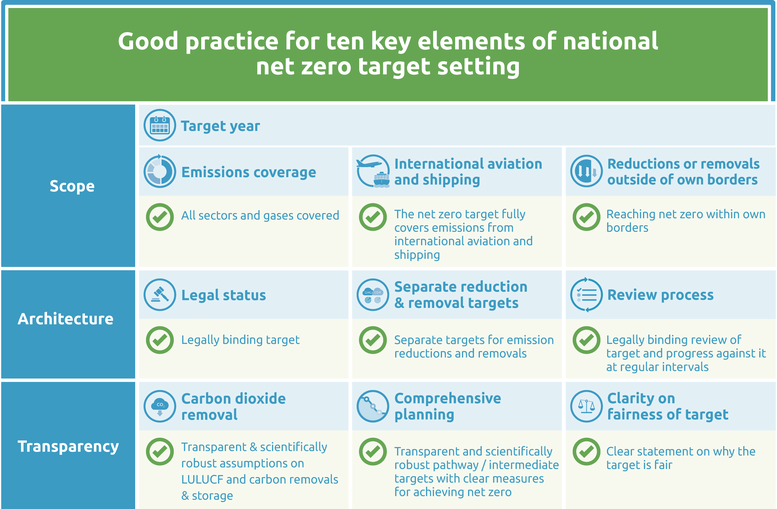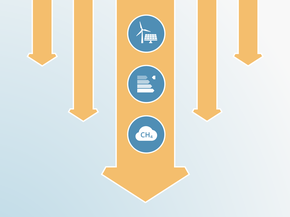Net zero targets
Summary
We evaluate the net zero target as: Poor.
In November 2022, Argentina submitted a long-term strategy (LTS) to the UNFCCC that includes a target to reach GHG neutrality by 2050 (Government of Argentina, 2022a). Argentina has previously announced its aim to set a net zero CO2 target (“carbon neutrality”) by 2050 in its second NDC submitted in 2020 (Government of Argentina, 2020b).
Argentina’s net zero target does not cover most of the good practice elements identified by the CAT net zero methodology. The target explicitly covers all gases and sectors of the economy, but the government has failed to disclose other key information such as the role of carbon dioxide removals.
Argentina could improve the target architecture and transparency of its net zero target. For example, the government could set separate reduction targets and clarify its accounting methodology for LULUCF emissions. It could further improve transparency on its planning process, the use of tools such as pathway modelling and specific sectoral policy objectives to reach net zero.
Ten key elements
Scope
- Target year – Argentina aims to reach net zero by 2050.
- Emissions coverage – In its LTS, Argentina specifies that its target covers all GHGs and all sectors of the economy (Government of Argentina, 2022a).
- International aviation and shipping – Argentina provides no information on its intention to cover international aviation and shipping.
- Reductions or removals outside of own borders – Argentina provides no information on its intention to use international offset credits to meet its net zero target.
Target architecture
- Legal status – Argentina’s net zero target is part of the LTS it submitted to the UNFCCC in November 2022 (Government of Argentina, 2022a).
- Separate reduction & removal targets – Argentina does not provide separate emission reduction and removal targets.
- Review process – Argentina provides no information on its intention to establish a review cycle for its net zero and intermediate targets.
Transparency
- Carbon dioxide removal – Argentina does not provide transparent assumptions on carbon dioxide removals.
- Comprehensive planning – Argentina’s LTS describes high-level objectives for key decarbonisation sectors (Government of Argentina, 2022a). It does not present decarbonisation pathways or establish clear policy objectives to reach its carbon neutrality target. However, as part of its LTS, Argentina did announce that it will develop such pathways and policy roadmaps in the future (Government of Argentina, 2022a).
- Clarity on fairness of target – Argentina argues that its target is ambitious and fair based on its current economic situation. However, it also states that the achievement of the target will require substantial concessional international finance to achieve it.
Good practice
The Climate Action Tracker has defined the following good practice for all ten key elements of net zero targets. Countries can refer to this good practice to design or enhance their net zero targets.
Further analysis
Latest publications
Stay informed
Subscribe to our newsletter





